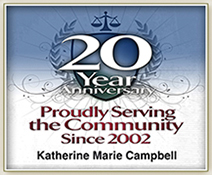Essential Divorce Documentation: What Should You Know Before You Start Your Divorce?
 When starting down the divorce road, the beginning can be chaotic for many different reasons. Educating yourself about your own situation can reduce fear, anxiety, and empower self-advocacy. As a Certified Family Law Specialist* practicing family law in San Mateo and Santa Clara Counties, clients often ask me how to prepare and what data to collect before the divorce. This blog addresses educating yourself in the early planning stages
When starting down the divorce road, the beginning can be chaotic for many different reasons. Educating yourself about your own situation can reduce fear, anxiety, and empower self-advocacy. As a Certified Family Law Specialist* practicing family law in San Mateo and Santa Clara Counties, clients often ask me how to prepare and what data to collect before the divorce. This blog addresses educating yourself in the early planning stages
This is not an exhaustive list of relevant information but it is a very good starting place. If you question the relevance of some information, include it. Divorce touches many parts of a person’s life so a lot of information is relevant, you can always set it aside if it is not relevant.
Collect And Organize:
Identify your joint and individual assets, debts, income, and recurring expenses. Compile the names of institutions or vendors, account numbers, account titles, and any online access information. Ideally a shared spreadsheet facilitates mutual data collection and sharing. However, if you fear your spouse will abuse the information, then collect the data discretely, and maintain your own spreadsheet. You can always choose to share it later when asset protections are in place.
Financial institutions Collect account details for checking or savings accounts in banks or credit unions. Money market accounts, mutual funds, or accounts holding employer-offered stock programs such as ESPP or stock grants (options or units) for vested and unvested stock.
Monthly bill payments Identify what automatic payments are made through which accounts as well as income sources such as payroll, Venmo or Zelle. Some payment examples: utility, insurance, mortgage, taxes, credit cards, gardener, child-care, children’s activity expenses, Netflix or Hulu payments, Clipper card replenishments, Paypal, Venmo, or Zelle accounts.
Insurance information Do not change insurance coverage or beneficiary before your divorce. Unauthorized changes can leave you vulnerable to covering the much higher uninsured costs if your spouse is injured. At this stage, just collect the information.
Health Insurance: Identify the company, policy information, premium payments, coverage, benefits, and any policy limits.
Home and Auto Insurance: Identify the company. Collect a declarations page with the coverage and policy limits. Identify the premium payment frequency and next due date. Policies insuring joint assets should continue until there is a written agreement or court order otherwise.
Life insurance: Identify the company, name of owner, insured, beneficiaries(y), benefit amount, frequency and amount of premium payments, accrued cash value, and if applicable, the term start and end.
Child-related Documents Child-related documents could include parenting agreements such as visitation schedules, child support, or expense-sharing. If your child is adopted or you have guardianship, collect these documents too.
Children’s care providers regular medications Collect and make sure both parents have the names and contact information for each of your children’s care providers such as pediatricians, dentists, child care providers, and teachers.
Legal Agreements Collect any existing legal agreements including wills or trusts, any prenuptial or postnuptial agreements. Any information regarding pending legal actions: criminal cases, civil suits (personal injury, employment-related discrimination or worker’s compensation actions (past or present)), social security applications, or disability claims should be provided to any divorce professionals.
If your divorce ultimately does go forward, consider a collaborative divorce, where both spouses work alongside legal, mental health, and financial professionals to reach agreements the spouses co-create outside the courtroom. This collaborative process encourages cooperation, minimizes conflict, and frequently leads to a longer-lasting more harmonious resolution.
At Campbell Family Law offices, Kathy Campbell works in the out-of-court processes of mediation, collaborative divorce, and collaborative mediation to ensure clients have the flexibility they want and need.
If you seek an amicable divorce? Contact Kathy today to see how she can help.
Note: This information is general in nature and should not be construed as legal/financial/tax/or mental health advice. You should work with your attorney, financial, mental or tax professional to determine what will work best for your situation.
*Certified by the State Bar of California Board of Legal Specialization


